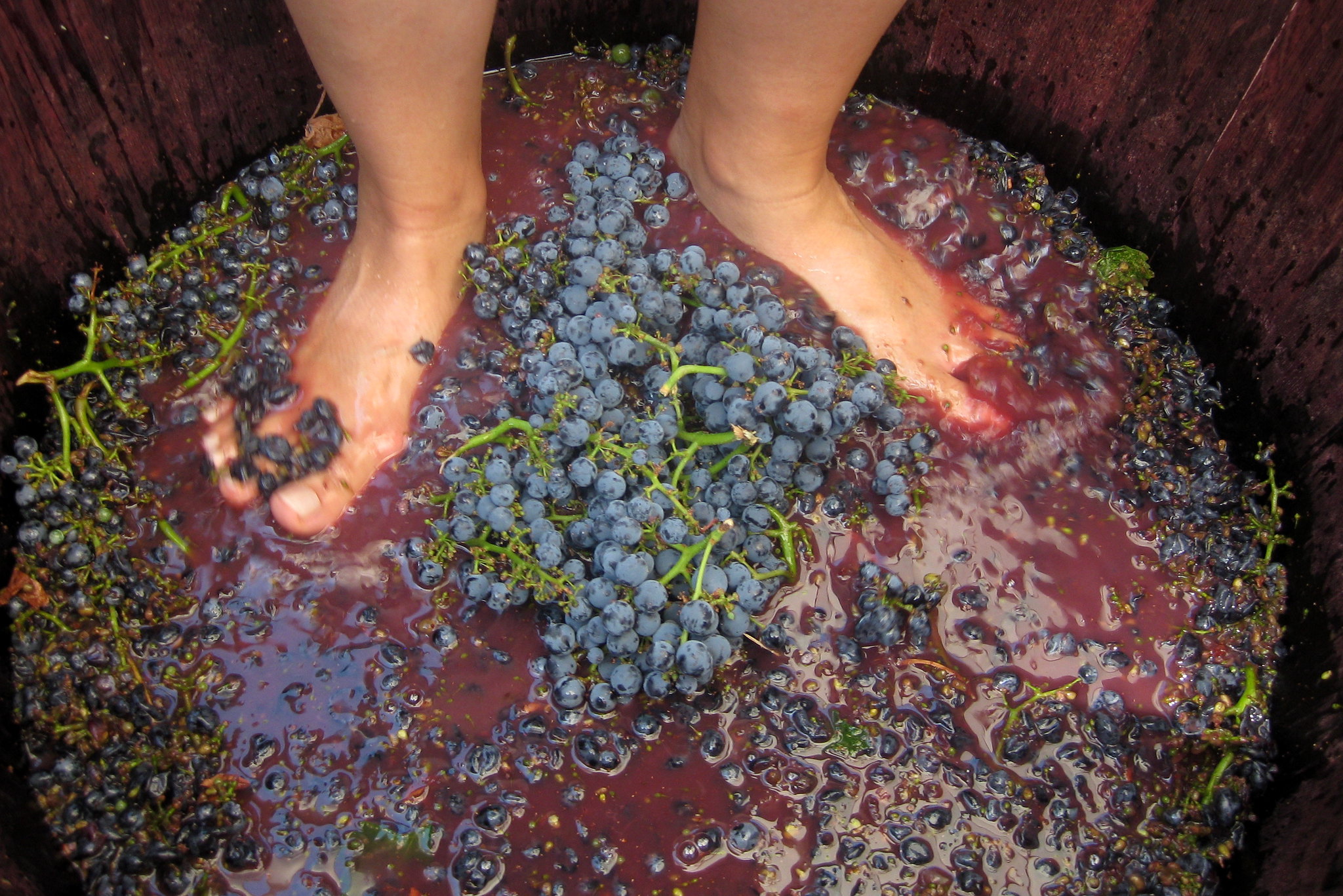|
אֱֽלֹהִ֡ים בָּ֤אוּ גוֹיִ֨ם ׀ בְּֽנַחֲלָתֶ֗ךָ (תהלים עט:א)
אֳפָקִים נִתְּנוּ לְטִבְחַת גְּבוּלוֹתֶֽיךָ
בְּאֵרִי מֻצְּתָה מִמֵּימֶֽיהָ מֻפְשָׁט מוֹשָׁבִי׃
בְּתוּלֹתַ֥י וּבַחוּרַ֖י הָלְכ֥וּ בַשֶּֽׁבִי׃ (איכה א:יח)
|
God, nations entered Your inheritance! (Psalms 79:1)
Horizons were given to Your borders’ slaughter.
My well was drained of her waters, my town was stripped
— my young women and men taken captive! (Lamentations 1:18)
|
|
נָתְנ֡וּ אֶת־נִבְלַ֬ת עֲבָדֶ֗יךָ מַ֭אֲכָל (תהלים עט:ב)
גִּבְעוֹת הַנֶּגֶב נִשְׂרְפוּ כַּהֵיכָל
דָּם נִשְׁפַּךְ וּלְנַקּוֹתוֹ מִי יוּכַל
הָעֲשָׂרָה בִּנְתִיבוֹתֵיהֶם כׇּל־אֶחָד שָׁכַל
וּמִשָּׁמַֽיִם זָעַק אֲהָהּ אֵל הִסְתַּכַּל
זִקְנֵי עַמְּךָ כּוֹאֲבִים אֶת־מַכְאוֹבִי׃
בְּתוּלֹתַ֥י וּבַחוּרַ֖י הָלְכ֥וּ בַשֶּֽׁבִי׃ (איכה א:יח)
|
They gave the corpses of Your servants as carrion! (Psalms 79:2)
The hills of the southland were burned like the Temple.
Blood was spilt, and who can clean it?
The ten, in their paths, each one was bereaved,
and from heaven cried: “Alas! O Deity, look!
Your people’s elders are suffering my suffering!”
— my young women and men taken captive! (Lamentations 1:18)
|
|
שָׁפְכ֬וּ דָמָ֨ם ׀ כַּמַּ֗יִם (תהלים עט:ג)
חוֹלִית כְּמוֹ־חוֹל בְּעֵינַֽיִם
טָבְעוּ שְׁעָרֶיהָ כִּפְלַֽיִם
יָכִינִי נִהְיְתָה כִּירוּשָׁלַֽיִם
כָּלְאוּ אֶת־יוֹנְקֵי שָׁדַֽיִם
לְחׇרְבָּה מִי־יִבְנֶה פַּעֲמַֽיִם
מִי־יָשׁוּב בְּקוֹל שֽׁוּבִי שֽׁוּבִי׃
בְּתוּלֹתַ֥י וּבַחוּרַ֖י הָלְכ֥וּ בַשֶּֽׁבִי׃ (איכה א:יח)
|
They spilt blood like water! (Psalms 79:3)
Ḥolit, like sand in the eyes.
Her gates sunk doubly.
Yakhini became like Jerusalem.
They imprisoned suckling babies!
To destruction, who will build a second time?
Who will return at the sound of “Return, return?”
— my young women and men taken captive! (Lamentations 1:18)
|
|
הָיִ֣ינוּ חֶ֭רְפָּה לִשְׁכֵנֵ֑ינוּ (תהלים עט:ד)
נוֹבָה הֻשְׁתַּק נִגּוּנֵֽינוּ
סֻגְּפוּ אֹהֲבֵי פִּזְמוֹנֵֽנוּ
עַזָּה כַּמָּֽוֶת חֶדְלוֹן לְחָנֵֽינוּ
פְּסַנְתֵּרִין וְסוּמְפֹּנְיָה בַּל־יְשַׂמְּחוּ אֶת־לִבִּי׃
בְּתוּלֹתַ֥י וּבַחוּרַ֖י הָלְכ֥וּ בַשֶּֽׁבִי׃ (איכה א:יח)
|
We have become the reproach of our neighbors! (Psalms 79:4)
Nova — our melody was silenced.
The lovers of our choruses were tormented.
Strong as death is the ceasing of our tunes.
Psaltery and symphony, let them not cheer up my heart!
— my young women and men taken captive! (Lamentations 1:18)
|
|
עַד־מָ֣ה יְ֭הֹוָה תֶּאֱנַ֣ף לָנֶ֑צַח (תהלים עט:ה)
צַדֵּק דִּין בְּנֵי פְּסַיידָּאק הַנְּתוּנִים לְרֶֽצַח
קָרַֽעְנוּ בְּגָדֵֽינוּ עַל־מְפִיצֵי קֶֽצַח
רְעַם אֵל עֶלְיוֹן דְּרֹךְ פּוּרָם הַזֵּה נֵֽצַח
שְׂדֵרוֹתֵינוּ תְּחֻסַּֽנָּה בַּת־עַמִּי תּוּשְׁבִי׃
בְּנֵ֣י הַמְּדִינָ֗ה הָֽעֹלִים֙ מִשֶּׁבִ֣י׃
|
Until what, Cause, will You rage eternal? (Psalms 79:5)
Justify the judgment of those of Psyduck, given over to murder.
We have torn our clothes for those scattering nigella.
Thunder, Highest Deity! Tread their vintage! Splatter their juice!
Our avenues will be strengthened; you will be returned, my poor people!
The children of the land who ascend up from captivity!
|
|
תָּ֤ב֣וֹא לְפָנֶיךָ֮ אֶנְקַ֢ת אָ֫סִ֥יר
כְּגֹ֥דֶל זְרוֹעֲךָ֑ ה֝וֹתֵ֗ר בְּנֵ֣י תְמוּתָֽה׃
וְהָ֘שֵׁ֤ב לִשְׁכֵנֵ֣ינוּ שִׁ֭בְעָתַיִם
אֶל־חֵיקָ֑ם חֶרְפָּ֘תָ֤ם
אֲשֶׁ֖ר חֵרְפ֣וּךָ אֲדֹנָֽי׃
וַאֲנַ֤חְנוּ עַמְּךָ֨ ׀
וְצֹ֥אן מַרְעִיתֶךָ֮
נ֤וֹדֶ֥ה לְּךָ֗ לְע֫וֹלָ֥ם
לְד֥וֹר וָדֹ֑ר
נְ֝סַפֵּ֗ר תְּהִלָּתֶֽךָ׃ (תהלים עט:יא-יג)
|
Let the prisoners’ groans come before You;
by Your great arm free those condemned to death.
And return upon our neighbors sevenfold
upon their laps the shame
by which they shamed You, Master.
And we are Your people
and the flock You shepherd;
we thank You forever,
from generation to generation
we tell Your praises. (Psalm 79:11-13)
|

